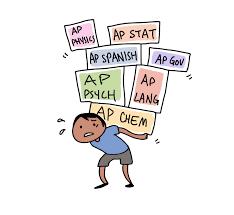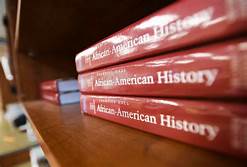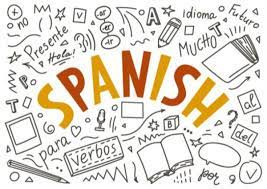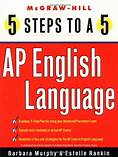By Jennifer Loja and Diana Sanchez
As the end of the year quickly approaches, many MCSM students have signed up for AP classes to take next year. Signing up for AP classes can be scary and challenging especially if you don’t know much about the class or the teacher. Below are interviews with former or current students in AP classes describing their overall experience in the class. These interviews were done anonymously in order to allow students to offer honest thoughts. Hopefully, these answers might give students some insight into the possible Humanities AP classes that they might take in upcoming school years.
- First, please state which AP classes you were interviewed for.
Student 1: I took AP US History (APUSH) in 11th grade.
Student 2: By the end of the school year, I will have finished taking AP Spanish Language and Culture in 11th grade.
Student 3: AP English Language and Composition – 11th Grade.
Student 4: I took AP World History in my sophomore year.
Student 5: I’m taking AP English Literature in 12th grade.
- Explain what was taught in the class (with a basic overview of the units). What were the most challenging units that upcoming students should look out for?
Student 1: “The APUSH Units. Unit 1 (1491 – 1607): This unit discusses Native American societies both before and after European arrival. You will learn about the complex societies of Native Americans and how that changed with the motivation of European countries to explore other parts of the world. Also, there will be an introduction to the colonization of the New World as well.
Unit 2 (1607 – 1754): This unit deals with colonies established in the new world under French, Dutch, Spanish, and British rule. You will learn how the colonies differ from one another and dive deeper into colonial society and how its structure. You will learn about the 13 colonies and what they were like before Great Britain tightened its control over them.
Unit 3 (1754 – 1800): In this unit, events like the French and Indian War are explained to show what led up to the colonies’ revolt for independence. Battles of the American Revolution are displayed along with new forms of government being discovered and explored within the new republic. The development of the two opposition political parties also created tensions among each other.
Unit 4 (1800 – 1848): Unit 4 dives into how the U.S. is being developed politically, culturally, and economically. With many ups and downs portrayed, the U.S. started to experience more changes, with reforms being passed involving alcohol, women having more open opinions, and religious revivalism underway. New improvements in technology to make jobs easier are also influencing debates over federal power regarding the economy as well.
Unit 5 (1844 – 1877): As the desire to expand due to the belief in God’s will, Americans began to expand out west. However, with seeking territory comes a price: Controversy and war. After fighting over land holdings and slavery existing in certain states, the nation was on the brink of internal war as sectionalism was intensifying. As a result, this unit digs deep into the nation’s problems as a whole, the civil war, and its reconstruction soon after.
Unit 6 (1865 – 1898): Unit 6 focuses on the nation’s new perspective after the Civil War, firstly, granting African Americans certain rights like other men. It also describes the new south with a rise in industrial capitalism, reform movements, and a rise in racial discrimination as well. Also, debates regarding the role of the government were underway.
Unit 7 (1890 – 1945): Unit 7 unpacks a lot about the U.S.’s interference in global conflicts like World War I and World War II as well as introduces the U.S.’s most impactful economic meltdown — The Great Depression. Also, internal improvements regarding America’s society and safe, sanitary conditions were being fought for during the progressive era by reformers like Ida Tarbell and Jacob Riis.
Unit 8 (1945 – 1980): Unit 8 covers the majority of the Cold War between the Soviet Union (USSR) and the United States. The introduction of 2 political ideologies is being introduced across the world, causing proxy wars and tension among countries to develop. Also, within the U.S, the civil rights movement was happening.
Unit 9 (1980 – The Present): The modern era focuses on political conservatism that started to exist with the Reagan administration and new developments in tech and science within the U.S. with medical discoveries and the introduction of the internet. Also, new demographic shifts are introduced and conflicts as well, like 9/11. “
The most challenging units for APUSH were Units 4, 5, & 6 because these units overlap—causing information to quickly be confused in terms of dates and timelines.“
Student 2: “Each unit includes work on skills and strategies such as grammar, reading, writing, listening, spelling, and understanding culture. Throughout the year, the AP class focused on the six major themes of the AP Exam:
- Las familias y las comunidades (Families and Communities)
- La ciencia y la tecnología (Science and Technology)
- La belleza y la estética (Beauty and Aesthetics)
- La vida contemporanea (Contemporary life)
- Los desafíos mundiales (Global Issues)
- Las identidades personales y públicas (Personal and Public Identities)
Each topic had activities that involved writing, interpretation, and speaking. We would write essays based on these topics. There were videos that were played that regarded these topics. In every unit there was a project done in which one had to show their understanding and interpretation of the topic. These projects would be presented in front of classmates. We would have worksheets that covered these topics and included questions that would have to be answered. Each unit had its fair share of work. Personally, the units taught were easy to understand. But for the unit about Beauty, there can be varying thoughts about it. It’s a unit that is interesting to see the different views on it by different classmates.”
Student 3: “We were taught how to become better writers and read many books in the non-fiction genre. We read, wrote, and analyzed different texts. We learned how to write a synthesis essay, a rhetorical analysis essay, and an argumentative essay. The most challenging unit of this class was learning how to write a proper essay in forty-five minutes. It is even a bigger challenge than having to write three essays back to back to back on the exam.”
Student 4: “A basic overview of everything we have learned is the major conflicts and events that happened between the 1200s and the current times. The hardest unit is the first unit because that’s the start of everything. After the first unit, then it becomes clearer how all of these countries interacted with each other.”
Student 5: “In this class, we were taught skills that prepared us for the AP exam through reading different genres of literature. I would say the most challenging parts of each unit would be writing in-class essays because it’s as if you were actually writing an essay for the exam.”
- How would you describe the teacher that you had for the class? Do you think they were fair in terms of expectations and grading?
Student 1: “Ms. Drmacich (APUSH) is a really good teacher. Her class is lecture-based and she goes in-depth with the historical events being taught. She teaches you everything you need to know for the AP exam well. Her grading and expectations are fair and easy to meet if you listen and stay alert in class.”
Student 2: “Mrs. Tapia was the best teacher I could have for AP Spanish Language and Culture. Her way of teaching, and the way she presented the information, were always clear and easy to understand. She is easy to approach if a student is posed with a problem in class. She would always make sure everyone understood the work being taught. In her class one always had to prepare to learn something new, or review work. I believe she was fair in terms of expectations and grading. The class should be easy to follow along with and pay attention to since she presents material very well. It shouldn’t be hard to finish her assignments and the work she gives.”
Student 3: “Dr. Chiavola is the teacher for AP English Language and Composition. She is such a sweet person and I would say she is extremely fair in her grading. Sometimes, she does nitpick at your work, but it is for the better, as she expects the highest of her students and wants them to notice their mistakes and fix them for future work. She knows that her AP students will take this class seriously, and has high expectations of her students coming to class on time, coming every day, and completing her work on time and to the best of their ability.”
Student 4: “I would describe my teacher as understanding and approachable, but also strict and stern when they needed to be. They were fair in terms of grading and expectations. Even though it might seem super strict the way they grade, they prepare you for how Regent’s does their grading.”
Student 5: “I would describe my teacher as very welcoming, and enthusiastic to teach our class. Towards expectations and grading, I felt like my teacher was very lenient and fair.”
- How does the teacher teach the class? What are the benefits and disadvantages of this teaching style?
Student 1: “Ms. Drmacich teaches the class with lectures and PowerPoints. She has the notes on the board that are easy to write and explains them one by one, making sure students understand the big concepts. The major benefit is that there is a lot of information for you to have and use in future assignments and on the AP exam with essays, SAQs, and much more. A disadvantage is that sometimes you may zone out because your attention span is small, but don’t worry because these concepts are reiterated and connect to other units as well.”
Student 2: “Mrs. Tapia has different ways of teaching the class spending time on the material that is being taught. At the beginning of the year, when learning about, for example, holidays or the culture in Spanish-speaking countries, she would use slideshows to teach. There would also be “Do Now” questions that would have to be answered about what we were learning every day. It was mostly to see if you were understanding the material. We would, later on, share it with partners or out loud. She would teach the work and go over it clearly. She made sure we were able to understand. There were videos she would also play during class so we could understand certain topics more. Notes were also taken when she was using slideshows to present information. She would give many activities that would encourage us to learn more about a certain topic while doing the work. There were many instances where the class had to interact with one another and the teacher, which was encouraging. It was an advantage because it allowed us to stay focused.
Mrs. Tapia will also teach using worksheets. For example, we would do classwork and it would involve completing worksheets on topics. We would review the material once everyone was done. We were kept at the same pace. Projects were a big part of the class. We would most likely end up being paired with everyone at the end of the year. It allowed students to interact more. Personally, I found no disadvantages in her way of teaching. I felt that her way of teaching could fit into every student’s way of learning.”
Student 3: “Dr. Chiavola teaches the class through class discussions. Whenever we read a book, we read the book on our own, and then discuss our thoughts in class. We complete reading quizzes after we read a certain number of chapters. We have also watched many TedTalks and kept up with current events to improve our writing specifically for the rhetorical analysis essay. The benefit of teaching through class discussions is that students are able to voice their opinions and thoughts in a respectful manner. The disadvantage of teaching through this style is that not all students are comfortable with voicing their opinions in front of so many students. To any student worried about class discussions, any discussion in this class is completely on the student. Dr. Chiavola does not force any of her students to participate.”
Student 4: “The teacher taught this class by handing out notes and having students fill in important information based on the slideshow they present. Some benefits to this would be the student writing things down in order to help them remember things better. However, a disadvantage might be that once the student fills in the information, they could easily just stop paying attention.”
Student 5: “My teacher teaches very well and she shows that she knows a lot about the curriculum. She incorporates all learning in her lessons that is very useful for all students, whether they are visual, auditory, or kinesthetic learners. There aren’t really disadvantages to this form of teaching. I find it very effective.”
- How did you feel about the class at the beginning of the year and has it changed towards the end of the year?
Student 1: “At the beginning of the year, I honestly felt a little intimidated by both of my AP classes. I knew both AP classes were rigorous and required a lot of hard work to be put forth to do well. I thought I would be overwhelmed and not prepared. However, as the year went by, my feelings changed as I had a strict routine to study and handle the workloads for both classes. I also felt more confident in the assignments and exams I took as I discovered resources that helped and didn’t help. Overall, I do not regret taking both AP classes. I felt like they both pushed me to adapt and to learn what I am capable of as a student to take on and explore.”
Student 2: “In the beginning, I had little confidence in my ability to learn since I [already] did speak and understand Spanish. I just promised myself that even if I knew Spanish, I was going to pay attention in class and do all the work. But, Spanish is more than just conversations, but also grammar, understanding, etc. As a Spanish speaker myself, I have learned about certain aspects of the language that I had not known before. As I went through the year I was taught different materials. These materials were well taught and I was confident in the class and the work I had to do. I enjoyed how our class was pushed to do different types of work.”
Student 3: “I felt fairly nervous about the class at the beginning of the year. I knew that my writing was not the best, but I knew this class would help with it. I was willing to learn. Towards the end of the year, I loved this class. I enjoyed reading all of the books we read and it was a class I wasn’t dreading to be in. Dr. Chiavola and my fellow students created such a comfortable environment.”
Student 4: “At the beginning of the year I felt super nervous because I didn’t know anything about History. This feeling went away, although it might have been because I studied all night whenever we would have a test.”
Student 5: “At the beginning of the year I felt like I was going to struggle because the curriculum itself seemed tough, but over time, with all the work and practice, it got easier.”
- How did you feel about the AP test you took a couple of weeks ago? Is there anything you wish you could have studied more?
Student 1: “I felt prepared for AP exams overall. I also felt relieved that they were finally over. The APUSH exam, in my opinion, was fairly easy as I mainly studied the units they covered mostly on the exam.”
Student 2: “I felt ready for the AP Exam. I felt that all that I had learned and studied in and out of class was enough. It was a pretty stressful time because I had to make sure I completed everything within the time given. There are sections like doing the conversation recording, and the presentation recording that I was worried about. I felt satisfied when finishing the exam. I wish I had practiced more when it came to the audio recording section. But, overall I’m glad it is over.”
Student 3: “I feel fairly good about the AP exam. I wasn’t worried about the timing of completing the multiple-choice or the essay. I was mainly worried about the prompts and the types of readings that would be included. We obviously do not know what prompts College Board would include, but it was way better than I expected. I know I studied to the best of my ability.”
Student 4: “I feel confident in the AP test for this class. YouTube is a great way to help study as well as the textbooks this class offers. I think the hardest part of the AP is the Long Essay Question, because that is only based on your knowledge of the topics and nothing else. So it would’ve been nice to study a little more for that.”
Student 5: “I felt pretty confident about the AP test and I feel like I was well prepared for it. There wasn’t really much that could have been studied for the test which focused on your comprehension and reading skills.”
- Does the teacher provide resources for students in order for them to do well (e.g. textbooks, practice questions, websites, etc.) and are they beneficial?
Student 1: “Ms. Drmacich provides her slideshows with information on Google Classroom as well as YouTube videos with history teachers like Heimler to help review concepts and study. She also gave out the AMSCO packets which helped us take brief notes on each unit and its events, important people, etc.”
Student 2: “Mrs. Tapia provides many resources for everyone in the class. There were a variety of resources such as newspapers, websites, music, interviews, movies, audio recordings, etc. She would have many worksheets and they would all cover different topics. These worksheets would often be given as homework and reviewed in class. Work was also given through the College Board. Passages with questions were a common type of homework. Quizzes were also assigned to the College Board to see if we understood what we were reading. There were also videos we could watch that provided tips on how to go along with the test on an actual day. On Google Classroom she provided us with many resources. For example, transition words, interview topics, basic grammar, practice emails, etc. We would be assigned persuasive essays since it would be something that would be on the exam. Many of the projects done included topics that could be on the exam. There were projects assigned that involved presenting, which was a big help. Towards the exam, we will do sections from previous exams during class. These resources were really helpful when doing the actual AP Exam. Even transition words and basic grammar rules went a long way when writing the essay, email, and recording sections.”
Student 3: “Yes, Dr. Chiavola does provide resources for students. She has given her students the AMSCO textbook to practice AP questions during their own free time. Before the AP exam, she uploaded multiple-choice problems to the AP classroom on a daily basis. These resources were very helpful. It was completely up to her students whether or not they wanted some extra practice. Before the AP exam, we have also done multiple choice practice in class where we were timed and discussed the questions as a class. She has also given us essay practice wherein one class period, we wrote one out of the three types of essays we will be writing on the exam. Dr. Chiavola gives us feedback for almost all of our work.”
Student 4: “The teacher provides textbooks, they put the slides on Google Classroom as well as the classwork, and on the College Board website they give practice questions weeks before the AP test.”
Student 5: “Yes, my teacher does provide enough practice questions that are beneficial. I felt like due to all the practice given I was able to pace myself during the AP exam.”
- How did the teacher prepare you for the AP exam, and did you feel that it helped? Was there anything more the teacher could do for you and your class?
Student 1: “She kept reviewing the concepts in both classes, often. She also gave us mock exams to expose us to the type of questions, and what to expect, on the actual AP. She also recommended videos to watch, asking for help from our peers, and watching the AP College Board videos. She did the best she could in the circumstances we are facing, with COVID still spreading and other things happening unexpectedly.”
Student 2: ‘She would send physical homework and online homework. Homework would be sent through the College Board. There would be quizzes, passages, and videos to watch. Topics that might appear were gone over many times during class. Towards the AP Exam, I attended a mock for 3 hours to actually experience what the exam would be like. During class time, there would be mocks done like: passages, writing emails, and essay sections. The teacher would also post resources in relation to what could possibly be on the test. For example sentence starters, possible topics, basic grammar, etc. The teacher did all that she could to help. In my opinion, all that was taught and what was done to prepare for the exam was helpful. When taking the exam, everything I learned in class ended up being really helpful.”
Student 3: “Dr. Chiavola prepared us for the AP Exam by doing in-class practice with multiple-choice problems and essay prompts. We completed the practice as if the class periods were the real exam. I believe Dr. Chiavola gave us so much practice. Everyone in her class felt prepared to complete the exam, which included the three essays in two hours and fifteen minutes.”
Student 4: “My teacher didn’t do too much to help prepare students for the AP exam. She offered after-school tutoring or the College Board videos that covered all the units. I feel as though the teacher could’ve done a brief review before the AP test, during class, and not just after school.”
Student 5: “She prepares us by doing lots of practice multiple choice questions as well as in-class essays. There was nothing more my teacher could have done for me. She did the best of her ability.”
- How much time did you dedicate to this class for studying and reviewing material? What study methods would you recommend for upcoming students to do well in the class?
Student 1: “Personally, I studied 3 hours a week for APUSH. I used online resources if I was confused like the AP College Board videos, which are a big help, you will be surprised. I also used past AP exam questions to be exposed to AP content and what the College Board is looking for when answering the questions. I would recommend setting a schedule for yourself with breaks when it comes to studying for multiple AP classes and doing research to see what is more beneficial for your learning—whether it be videos, pictures, notes, lectures, diagrams, etc.”
Student 2: “At the beginning of the year I would study for only a couple of hours every week. I felt that the work done in class was enough to help. Homework would be assigned worksheets and tasks on the College Board where we were checked on what we learned and whether we understood it. Nearing the AP exam, I started to study more. After doing all my homework I would study for two hours every day. I would review any classwork done. Sections of past exams would be given frequently and graded. I would review my mistakes in order to not repeat them. I was exposed many times in class to material that could possibly be on the exam. I would use resources online such as College Board, in which for homework I would have to read passages and do quizzes. There are websites where you can answer questions from past exams. I also looked over the possible topics that could appear in the essay, email, and recording parts of the exam. I practiced recording myself when answering a topic from a past exam. I would recommend answering past questions, looking over topics that might show up, and watching videos on strategies for taking the exam. It depends on how comfortable you are studying. Don’t wait until the last minute!”
Student 3: “For studying and reviewing material, I didn’t spend too much time earlier in the year. When it came closer to the AP exam, I spent fifteen to twenty minutes when I had the time to practice. Since we did practice during class, I didn’t have to worry about doing a lot by myself.”
Student 4: “About 2 days before an exam for this class, the teacher handed out a study guide. I would study that until I had it memorized. With that information, I got very good grades on all my tests. If you need extra studying, go to the after-school tutoring hours to ask for help.”
Student 5: “She dedicated a decent amount of time to studying and reviewing material since class time was also used to do practice questions. The only studying method that can be recommended for this class is to look over books you read in class because this test just consists of prior knowledge and skill.”
- If there is something you could change about the class, what would it be?
Student 1: “One thing I would change is to have more breaks and more time to review each unit AFTER it is taught. One reason is that our brains can only take so much and can only retain so much knowledge; so if you teach a unit and never discuss it until the AP exams come, we have a habit of forgetting the majority of the stuff we learned at the beginning of the year. That happened to me, but I also felt overworked and exhausted trying to remember everything all over again within less than a couple of days before the exam. So that would be one thing I would change.”
Student 2: “There isn’t anything I would change about the class. All the material was perfectly taught. In the class, there was enough practice and study time when preparing for the AP Spanish Exam. Resources were easily available when needed. Yes, there is a fair amount of work, but it will benefit one when it comes to taking the AP Exam and just learning Spanish overall. The class was enjoyable when learning new material. Mrs. Tapia would always encourage students to do the work. Mrs. Tapia was always open to answering questions in order to make something clearer. The students in the class were always interacting with each other and with Mrs. Tapia. Overall, there is nothing I would change about this class.”
Student 3: “I wished we were able to read more books as Dr. Chiavola has such good taste in novels. I also wish our seats were changed every marking period or so. We changed our seats twice so we were able to meet new people in our class. However, I wish I was able to talk to more of my peers.”
Student 4: “I would like to add more group or solo projects and find ways to make the class less boring and a bit more interactive.”
Student 5: “There isn’t much I would like to change about this class.”
- Any last comments/tips regarding the teacher or the class overall?
Student 1: “One tip is to study hard because hard work pays off! Also, to stay focused and alert every single day and be prepared for anything and everything. Ask for help when needed, and do not be afraid to ask questions. Go to tutoring before any big exam for extra help and to review the concepts. Practice makes perfect, as they say! And most importantly, have confidence and believe in yourself — even if you do not pass the AP Exam, just know that you tried your best and gave it your all.”
Student 2: “For the class, studying is a must even if one is a Spanish speaker. Study resources will be available, but studying on your own is also important. The work might seem like a lot, but trust me, it will be worth it. Just do the work to the best of your ability. Don’t be afraid to ask for help. Mrs. Tapia will always be there when you have any questions. Do your work on time so you or the teacher won’t get overwhelmed with work. Pay attention in class because there is a chance you will be lost if not paying attention. Always do your part when being part of the class. I can assure you will be in good hands and will do well on the AP Exam!”
Student 3: “For future students in AP English Language and Composition, I hope you enjoy the class and have fun!”
Student 4: “AP World History isn’t too difficult if you put in the effort. If you want more help outside of your teacher, you could go to the other teachers’ tutoring sessions.”
Student 5: “Even though it was a hard course, my teacher did a good job of providing us with the correct materials.”
If you would like more information regarding these classes, my best advice is to email the teacher directly. Teacher emails can be found on our school’s website.







